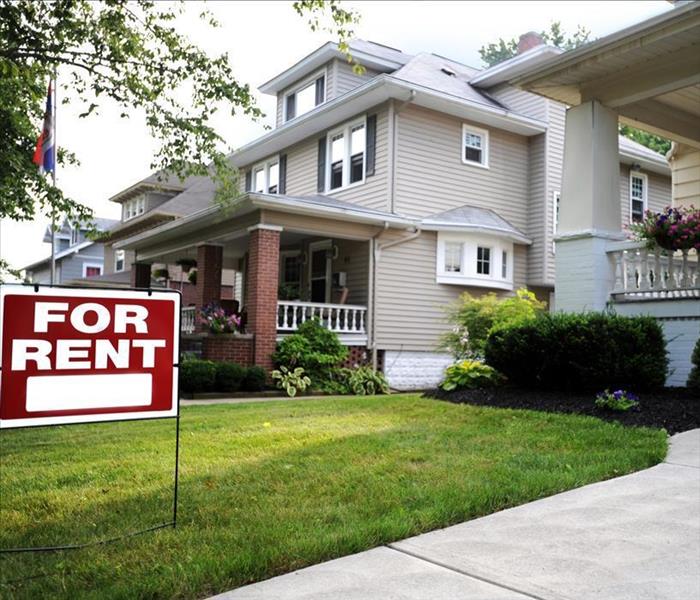Rental Property and Fire Damage: Who Pays for What?
11/5/2020 (Permalink)
 If a fire should occur---your landlord’s homeowner’s policy will cover the physical damage to the structure.
If a fire should occur---your landlord’s homeowner’s policy will cover the physical damage to the structure.
As a prior insurance agent. I could not stress to my renters enough. YOU 100% NEED TO CARRY RENTER’S INSURANCE. I know. I get it. You think you do not need to worry about it. But I will tell you why you do.
Here is how to look at it in laymen’s terms. Your landlord owns the structure. And you own your belongings. It is as simple as that. If a fire should occur---your landlord’s homeowner’s policy will cover the physical damage to the structure. And your renter’s policy will cover your personal, loose stuff in the home or apartment. I will repeat. Never, ever will your landlord’s policy pick up the damage to your TV, your clothes, or your appliances that YOU bought.
The first part of a renter’s policy is liability. This helps protect you legally if damage is done to the structure that is considered your fault. It would also cover if you are found legally responsible for injuries to other people or damage to their property.
The next part of the policy could include personal property coverage. This helps pay to replace stolen items too. This coverage typically protects items stolen after a break-in at your rental property, or even items stolen outside of your rental. For example, if your personal property (such as a gaming system) is stolen from your car, the personal property coverage in your renter’s policy may help pay to replace it. Once again. This is not something that will be covered on your landlord’s building policy. Just be aware. Any property loss is usually subject to your property deductible. Look to your policy to be aware of how much your property deductible is, so you can be financially prepared in the case of a loss.
A renter’s policy can also include additional living expenses. If you are unable to live in the home you are renting after a covered loss, covered costs may include hotel bills or additional food expenditures that are above the amount you would typically spend. Talk with your agent to make sure your renter’s policy covers these important additional living expenses.
Now if you are a landlord. You will want a landlord policy. This is very comparable to a homeowners policy, landlord insurance typically covers the building itself (and other structures on the property if there's destruction from a fire, lighting, wind, hail or another covered loss. To purchase homeowner’s insurance, you must be living in the home. Coverage varies by insurer or policy, so check with your agent before you rent out a room in your place. Otherwise you may not be covering the home or dwelling properly.
So---the point is. Make sure no matter which side of the “house” you are on. Remember to protect your own.
SERVPRO of New Philadelphia wants to ensure our residents are covered properly in the case if any loss. Especially fire. We specialize in fire and water damage restoration, the cornerstone of our business. We have extensive fire damage cleanup and restoration training to get your property back to pre-fire condition. Call us today to help. 330.556.4656.







 24/7 Emergency Service
24/7 Emergency Service